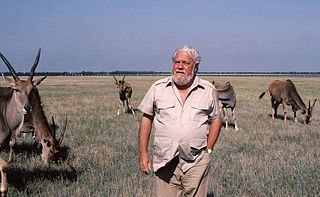A Quote by Cormac McCarthy
Once there were brook trout in the streams in the mountains. You could see them standing in the amber current where the white edges of their fins wimpled softly in the flow. They smelled of moss in your hand. Polished and muscular and torsional. On their backs were vermiculate patterns that were maps of the world in its becoming. Maps and mazes. Of a thing which could not be put back. Not be made right again. In the deep glens where they lived all things were older than man and they hummed of mystery.
Related Quotes
I loved them all the way one loves at any age -- if it's real at all -- obsessively, painfully, with wild exultation, with guilt, with conflict; I wrote poems to and about them, I put them into novels (disguised of course); I brooded upon why they were as they were, so often maddening don't you know? I wrote them ridiculous letters. I lived with their faces. I knew their every gesture by heart. I stalked them like wild animals. I studied them as if they were maps of the world -- and in a way I suppose they were.
The famous Zen parable about the master for whom, before his studies, mountains were only mountains, but during his studies mountains were no longer mountains, and afterward mountains were again mountains could be interpreted as an alleory about [the perpetual paradox that when one is closest to a destination one is also the farthest).
They rode like men invested with a purpose whose origins were antecedent to them, like blood legatees of an order both imperative and remote. For although each man among them was discrete unto himself, conjoined they made a thing that had not been before and in that communal soul were wastes hardly reckonable more than those whited regions on old maps where monsters do live and where there is nothing other of the known world save conjectural winds.
The newspaper stories were like dreams to us, bad dreams dreamt by others. How awful, we would say, and they were, but they were awful without being believable. They were too melodramatic, they had a dimension that was not the dimension of our lives. We were the people who were not in the papers. We lived in the blank white spaces at the edges of print. It gave us more freedom. We lived in the gaps between the stories.
If much in the world were mystery the limits of that world were not, for it was without measure or bound and there were contained within it creatures more horrible yet and men of other colors and beings which no man has looked upon and yet not alien none of it more than were their own hearts alien in them, whatever wilderness contained there and whatever beasts.
Grandad taught me that the alien signs and symbols of algebraic equations were not just marks on paper. They were not flat. They were three-dimensional, and you could approach them from different directions, look at them from different ways, stand them on their heads. You could take them apart and put them back together in a variety of shapes, like Legos. I stopped being scared of them.
If it happens that the human race doesn't make it, then the fact that we were here once will not be altered, that once upon a time we peopled this astonishing blue planet, and wondered intelligently at everything about it and the other things who lived here with us on it, and that we celebrated the beauty of it in music and art, architecture, literature, and dance, and that there were times when we approached something godlike in our abilities and aspirations. We emerged out of depthless mystery, and back into mystery we returned,and in the end the mystery is all there is.
Standing at the edge of our city, a man could feel that we had made this place of streets and dwellings in the stillness of the desert, and that we had done a brave thing... Or a man could feel that we had made this city in the desert and that it was a fake thing and that our lives were empty lives, and that we were the contemporaries of the jack rabbits.



































